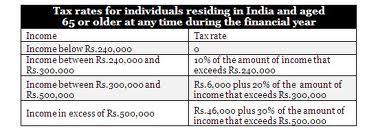How To Determine The Income Tax For A Salary Person?
Salary can be defined as the total remuneration or emoluments received by an individual on a periodical basis in lieu of services rendered by him during that period. Such income received by the individual attracts tax and is called as Income tax. In other words, the income tax for salary person is termed as tax on income earned by the individual during a specified period. The existence of employee-employer relationship is the pre-requisite mandate for taxing an income under the head salaries. For example any money paid to a partner in a partnership firm cannot be grouped under the head salaries whereas, the same should be grouped under “Income earned from Business or Profession”.

As per the Income Tax Act the definition of salaries includes Wages, Commission or Fees, other Perquisites received in lieu of salary, salary advance, Contribution by employer to a recognized provident fund, Pension or Annuity, Gratuity, and Leave Encashment. Perquisites is termed as any value or benefit entitled to an individual for his designation in addition to the gross salary and this includes benefits such as value of rent free accommodation provided by the employer, value of benefits or amenities granted either free or at concessional rate to the employees, value of sweat equity shares allotted etc. It is based on these factors that the income tax for salary person is determined.
These perquisites are treated as income received in lieu of salary and hence added to the total income for tax computation. But some perquisites are exempt from tax they are: value of medical expenses incurred to the exempt of 15000 is exempt from income tax. The income tax for salary person for any salaried person can be easily calculated using an easy online calculator. It is vital to submit a Form 16 or Form 16A as part of the process of filing tax returns.

